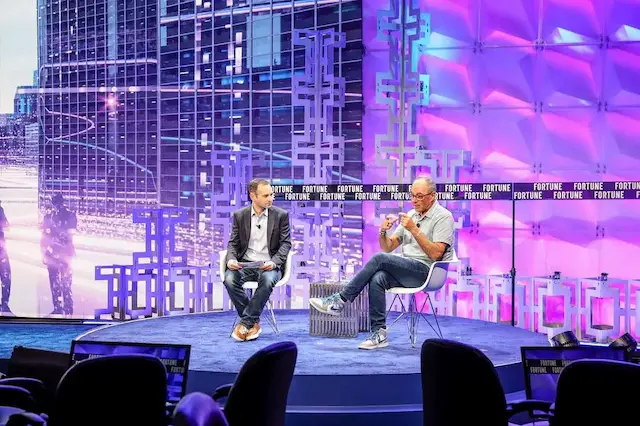为什么对老板说“不”很重要
|
我们都了解这样的感受:老板交给我们一项讨厌的任务,对此我们自己可能都不认可,但最终必须得做。很多时候,这些命令是让公司运转下去的关键。但并不总是如此。有时候,(这些命令)可能完全是错的。 康奈尔大学(Cornell)约翰逊商学院(Johnson school)的管理学教授詹姆斯•迪特称,这时候,如果下属能直言不讳,公司最终能获益。但在最需要员工给出意见的时候,很多员工往往都会失声。他说:“绝大多数情况下当公司最终陷入值得警醒的灾难之中,我们几乎总能追溯到早期就有人试图进行自下而上的沟通,只是由于害怕或不能这么做,任由问题日积月累。” 有些时候,不可能拒绝老板。但员工们总是有一些资源可以武装自己,只是他们自己可能还没有意识到。 每一个值得警醒的灾难都有其沟通和文化上的失误。2010年英国石油(BP)漏油事件发生后,该公司在上报安全事故方面存在的系统性问题大白于天下。瑞银(UBS)的一位魔鬼交易员正在伦敦接受审判,涉嫌非法操作、致使2011年该行损失超过20亿美元。但他很可能是鼓励高风险押注、注重高回报的企业文化的集中体现。 有些组织惩罚直言不讳的雇员。与此同时,太多高管声称,他们鼓励“开放的文化”,迪特表示。经理们可以采取多种方式达到目的,但同时所有的员工们也有几种方式,保护自己不受老板强人所难。 第一步是质疑权威。我们可能认为权威与职务高低直接相关,但事实不完全是这样。达特茅斯塔克商学院(Tuck School of Business)教授亚当•克莱伯姆说:“权威事实上源于你对他人的依赖,和他人对你的依赖。”他建议下属可以通过几种方式提高权威性。“一是工作出色,成为主管经理不可或缺的得力干将。”二是建立广泛的同事和导师网络,降低对主管经理的依赖。一旦经理提出在伦理上处于灰色地带的要求,员工就可以借助同盟的支持,使其发生改变。 思考我们上述关于权威的观点,能让所有的下属受益。迪特在2011年共同撰写并发布在《管理学会学报》(Academy of Management Journal)上的一份研究报告指出,不管企业高管和经理实际是怎么做的,我们很多人对他们的行为都会有先入为主的看法。研究人员对一家科技公司的190名员工进行采访后发现,很多人都存在所谓的“固有”信念,缺乏证据支持、但根深蒂固。包括:就算员工看到了相反的证据,但如果发表与管理者不同的意见,就有挑战上级能力的嫌疑。 迪特说:“看起来有一些真的很荒谬的观点,如果我们不装作管理者懂的更多,整个等级制度就会轰然倒塌。” 希望打造开放式文化的管理者首先要解决的问题是如何让员工改变对权威的固有观念。实际上,密歇根大学(University of Michigan)罗斯商学院(Ross School of Business)教授雪莉•科佩尔曼2012年的一项研究显示,自诩权威的人可能会在不经意间发出不接受不同意见的信号。研究进行过程中,让参与者看了很多的学院院长照片。在没有提供这些院长的具体工作时,很多人就表示,来自高排名大学的院长看起来没有来自低排名大学的人那么容易合作。当被问到他们将如何申请学费补助时,参与者普遍表示,他们会向那些高排名大学的院长要求较少的补助。 |
|
|
We all know the feeling: the boss has given us an unpleasant task we may not even agree with but ultimately have to perform. Many times, these orders are essential to making a company run. But not always. And sometimes they seem plain wrong.
In those cases, companies ultimately benefit when a subordinate speaks up, according to James Detert, a management professor at Cornell's Johnson school. But right when their input is needed most, many employees lose their voice. "In the vast majority of cases where companies end up with whistleblowing-level disasters, almost always we can trace them back to an early conversation where somebody tried to communicate directly up the chain and couldn't or were so afraid to do so that they let it pile up," he says.
Sometimes, it's impossible to push against powerful people. But employees often have resources to empower themselves that they may not recognize.
Every whistleblowing-level disaster comes with its unique combination of communication and cultural mishaps. After the 2010 BP oil spill, it came to light that the company had a systemic problem with reporting safety issues up the chain. A rogue trader at UBS (UBS) is currently on trial in London on charges that he acted illegally when he made trades that lost the bank over $2 billion in 2011. Yet, he was probably part of a corporate culture that encouraged risky bets and big returns.
Some organizations penalize staffers for speaking out. At the same time, plenty of executives claim they want to encourage an "open culture," Detert says. Managers can take several steps to pull this off, but in the meantime, there are a couple of ways all employees can protect themselves from a boss forcing their hand.
The first step is to question the nature of power at work. We may think power is directly related to job titles, but it's more nuanced than that. "Power really resides in one's dependence on somebody else, and their dependence on you in the other direction," says Adam Kleinbaum, a professor at Dartmouth's Tuck School of Business. Subordinates can increase their power in a couple of ways, he suggests. "One is by doing excellent work that makes them completely indispensable to the manager." The second is to reduce dependence on that manager by developing a broad network, including peers and mentors. When a manager makes an ethically gray request, an employee can use his or her allies as backup to deflect it.
All of us who have bosses could benefit by thinking about the origin of our ideas about power. Many of us have set beliefs about how executives and managers behave regardless of how they actually act, according to a 2011 study co-authored by Detert that was published in the Academy of Management Journal. After interviewing 190 people at a tech company, the researchers found that many demonstrated what's called "implicit" -- or non-evidence-based, yet deep-rooted -- beliefs. Those included the idea that voicing an opinion different from the manager's would seem like a challenge to his or her ability, even if employees had seen evidence to the contrary.
"There seems to be some really silly notion that if we don't all pretend that managers know more, then the whole hierarchy would all crumble down," Detert says.
Managers who want to create an open culture first have to work to overcome how their employees naturally understand power. In fact, people who consider themselves powerful may unintentionally give off signals that they aren't open to another perspective, according to a 2012 study by Professor Shirli Kopelman at the University of Michigan's Ross School of Business. In the study, participants viewed pictures of deans from various schools. Without any information about where the deans work, people said that those from higher-ranked universities seemed less cooperative than those from lower-ranked universities. Furthermore, when asked how they would negotiate funding, participants generally said they would ask for less money from the deans from higher-ranked universities. |











